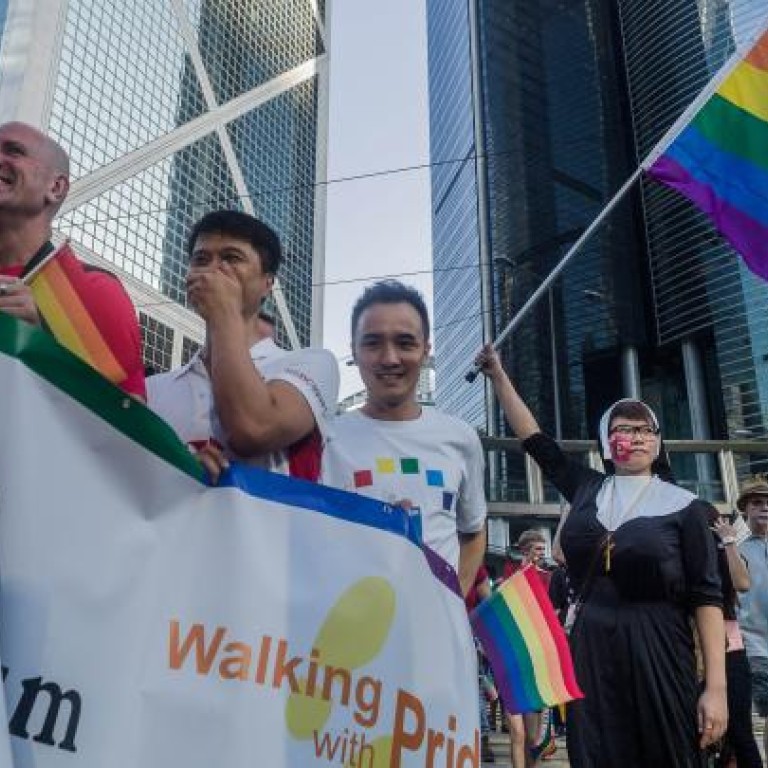
Gay-bias law could help create a more tolerant society
Amy Lai says enforcement problem no reason to avoid enacting legislation
Lawmaker Cyd Ho Sau-lan put forward a proposal calling for public consultation on legislation to outlaw discrimination based on sexual orientation.
Members of the Democratic Alliance for the Betterment and Progress of Hong Kong denied such discrimination existed, and added that to outlaw such discrimination, even if it did exist, would be an act of over-legislation because such laws were difficult to enforce.
Fortunately, the DAB did not take an extreme moralistic stance by denouncing sexual orientations other than heterosexuality as "immoral". This makes it easier to determine whether such discrimination laws would be indeed "over-legislation".
Legal scholars have two opposing views on what role the law should play in society. Advocates for legal modesty believe society should aim to set up laws to curb the worst conduct, rather than to curb all bad conduct. They argue that not only is the latter unfeasible, it would also result in adverse consequences.
Advocates for legal moralism, on the other hand, argue that the law symbolises society's ideal values. Society, therefore, need not wait for the public to reach a full consensus before setting up new laws, but should use the law to educate the public and help citizens cultivate good values.
In light of these views, the DAB's stance may be seen as "modest" while those who support the proposal appear to be idealistically set on pushing specific values at the risk of oppressing those who do not agree with them.
All factors considered, however, an "idealist" approach would seem wiser than a "modest" one.
Ho based her proposal on a University of Hong Kong poll she had commissioned, which indicated that 75.8 per cent of people believe gay people are discriminated against and that 63.8 per cent support outlawing such discrimination. Based on her survey, therefore, the majority of Hong Kong people have already reached a consensus. Hence, setting up a new discrimination law would not be an act of over-legislation.
In the past, the government did not wait until everyone believed in sexual equality or that women were being unfairly treated before outlawing sex discrimination. Those who hold the view that gay people do not need legal protection would have to concede the fact. Difficulties in enforcing discrimination laws do not justify not enacting them.
The Society for Truth and Light stated on its website its opposition to Ho's proposal, pointing to the fact that gay people are not a "suspect class" - that is, deemed likely to be subject to discrimination - even in the US. The society must be either rather ill-informed or trying to manipulate the facts to bolster its stance.
It is true that the US Supreme Court, upholding the 14th amendment of the constitution, held that gay people would not receive the same special protection as members of racial minorities do. But the laws have always been controversial and under constant attack.
Moreover, individual states in the US have the right to set up laws that offer gay people more rights than they have under federal law. Gay people in states such as Massachusetts and California do indeed belong to the "suspect class" and their complaints of discrimination do receive strict scrutiny under state laws.
The society also ignores the fact that gay marriage is legal in nine US states, while many others allow civil unions and domestic partnerships, which entitle gay couples to the same benefits as married couples.
It would be too much to expect gay marriage, or even civil unions, to be legalised in Hong Kong in the near future. But should our government not at least adopt an educative approach so that more of society will begin to recognise gay people as human beings and become more tolerant of homosexuality? Should we not at least do something that will foster a true community and help maintain our international status as a liberal society?
